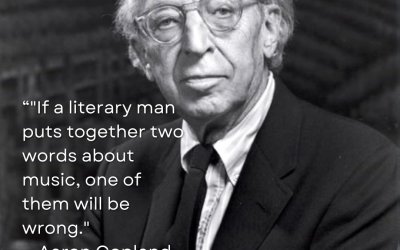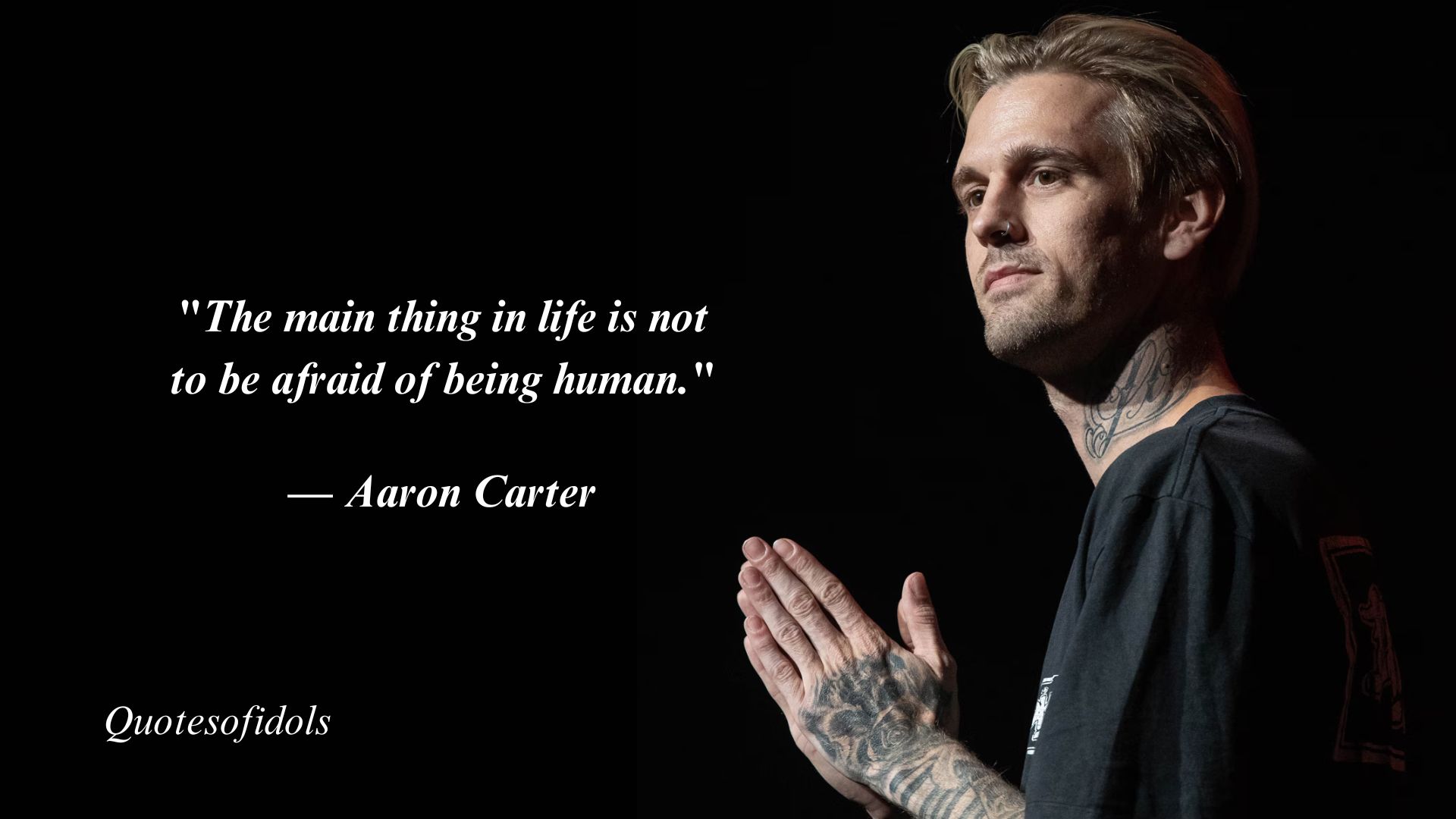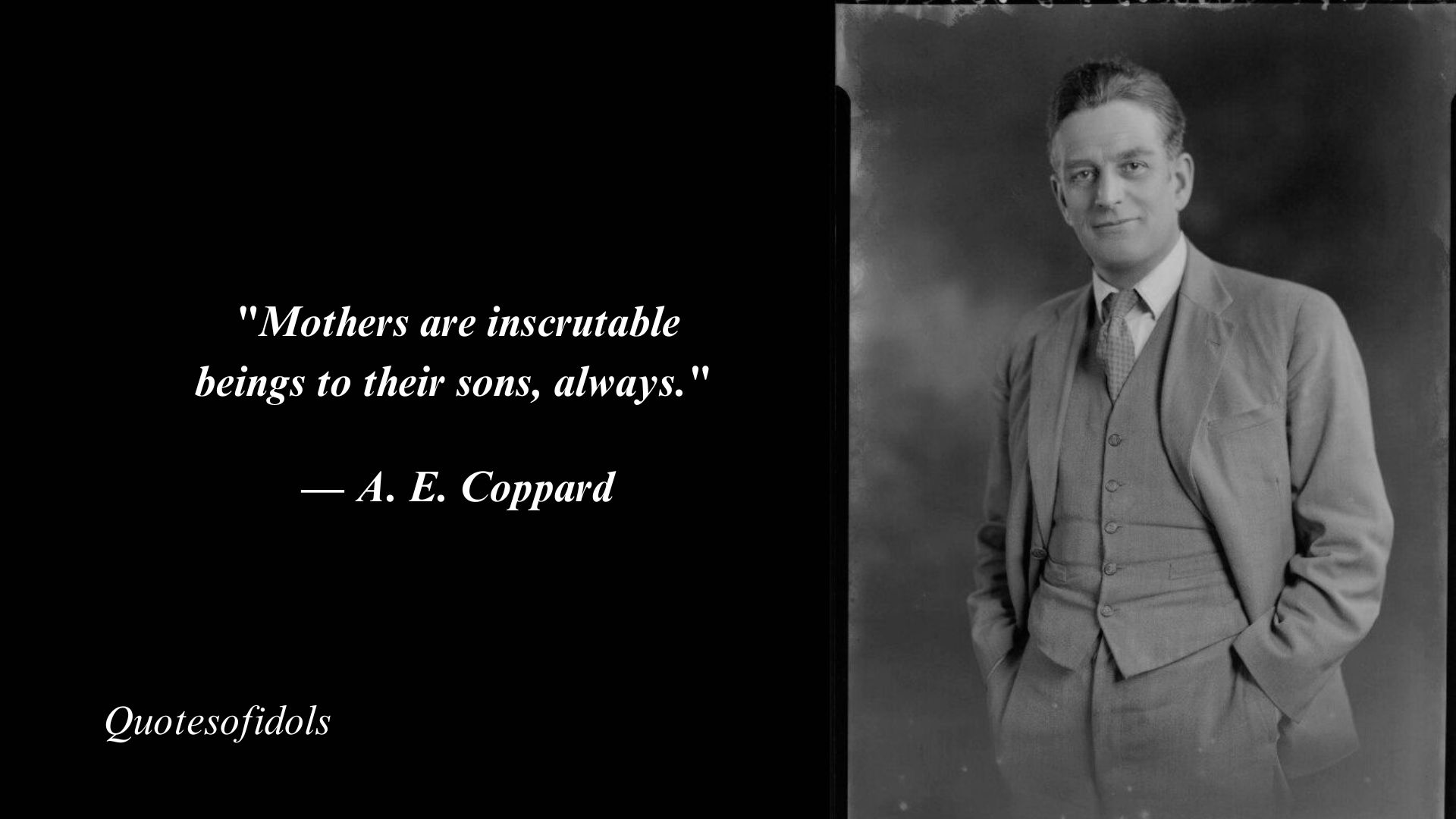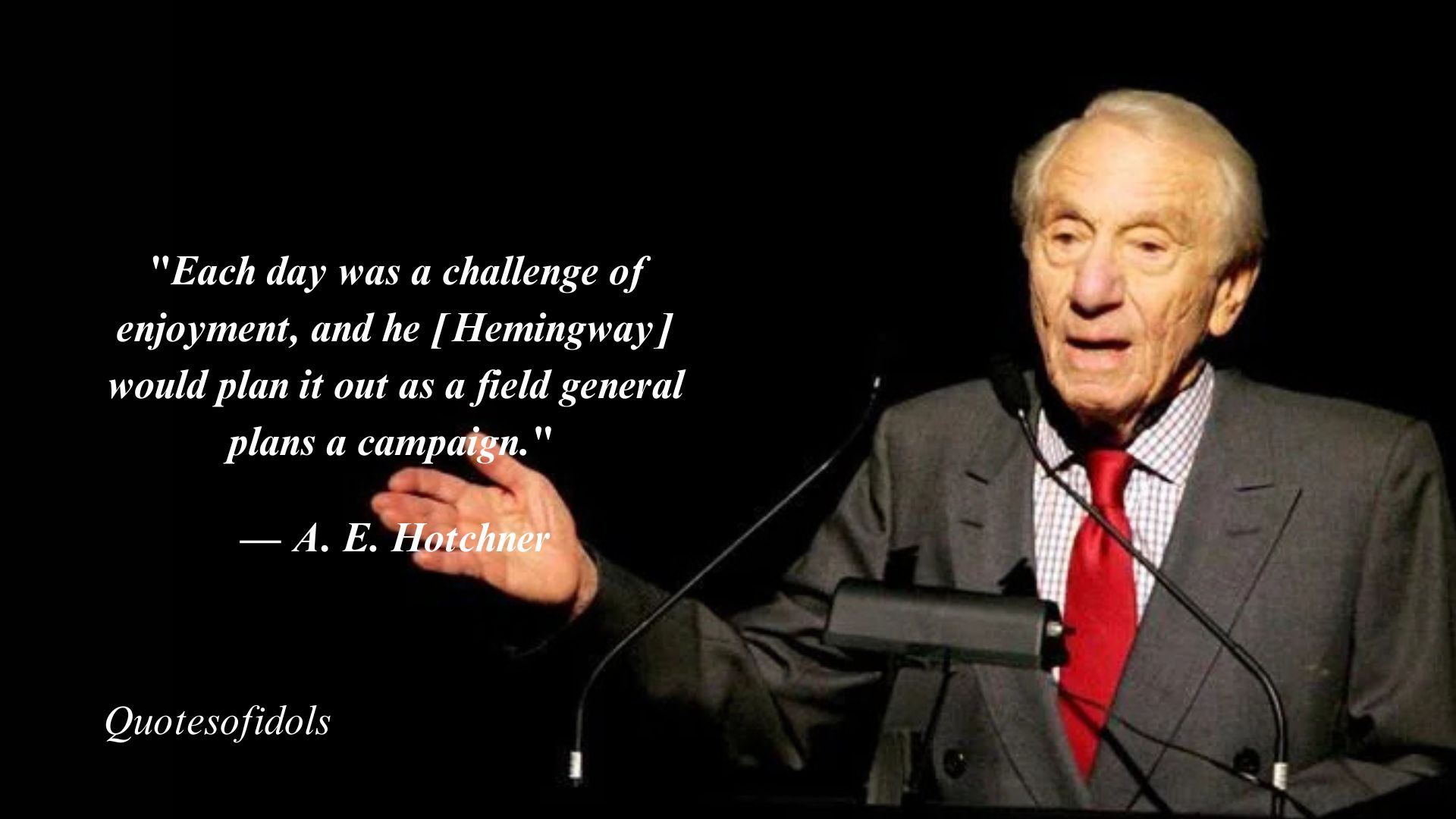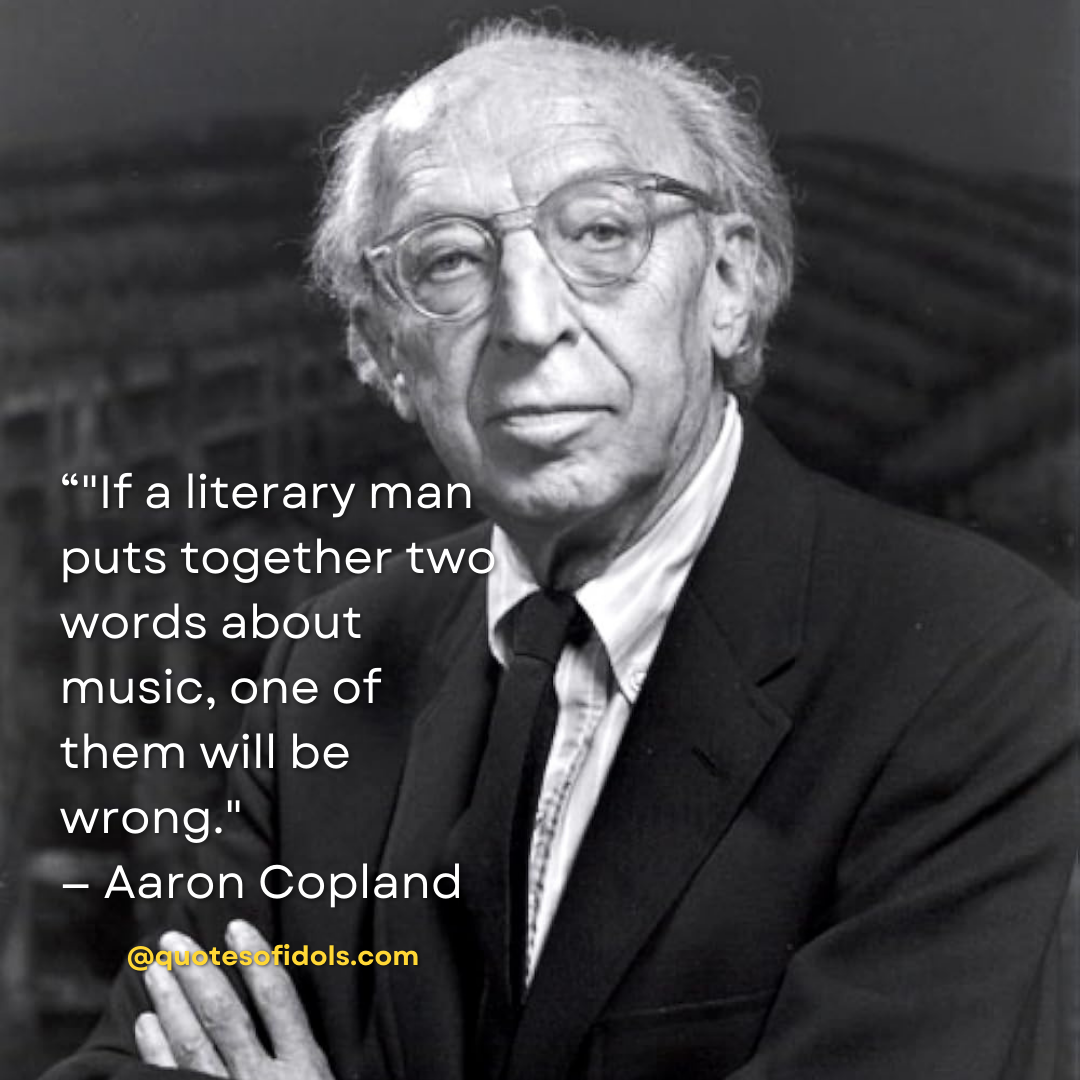Ivan Turgenev Quotes: Profound Reflections on Life, Love, and Society
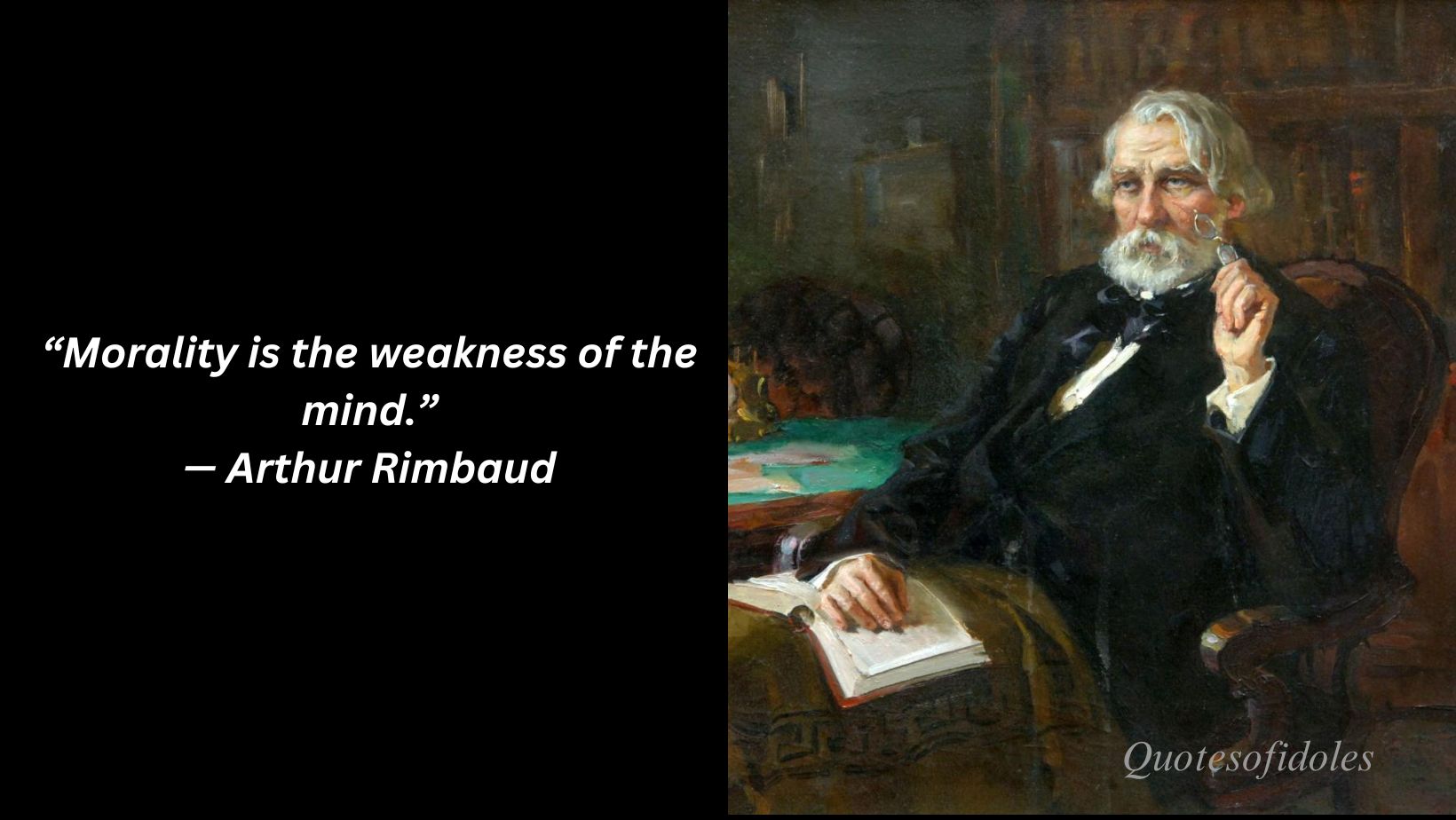
Ivan Sergeyevich Turgenev was a Russian novelist, short story writer, poet, playwright, translator and popularizer of Russian literature in the West. His first major publication, a short story collection titled A Sportsman’s Sketches, was a milestone of Russian realism.
Ivan Turgenev Quotes
1. “If we wait for the moment when everything, absolutely everything is ready, we shall never begin.”
— Ivan Turgenev
2. “We sit in the mud my friend and reach for the stars.”
— Ivan Turgenev
3. “I do not know what the heart of a bad man is like. But i do know what the heart of a good man is like. And it is terrible.”
— Ivan Turgenev
4. “The temerity to believe in nothing.”
— Ivan Turgenev
5. “Love, I thought, is stronger than death or the fear of death. Only by it, by love, life holds together and advances.”
— Ivan Turgenev
6. “In my case there was no first love. I began with the second.”
— Ivan Turgenev
7. “The past was a dream wasn’t it? And who ever remembers dreams?”
— Ivan Turgenev
8. “Everyone needs help from everyone else.”
— Ivan Turgenev
9. “Death doesn’t come running, but you can’t run away from it, neither; nor must you be helping it along.”
— Ivan Turgenev
10. “Don’t force me into saying what I don’t want to say, and what I won’t say.”
— Ivan Turgenev
11. “What’s terrible is that there’s nothing terrible, that the very essence of life is petty, uninteresting, and degradingly trite.”
— Ivan Turgenev
12. “Nature cares nothing for logic, our human logic: she has her own, which we do not recognize and do not acknowledge until we are crushed under its wheel.”
— Ivan Turgenev
13. “In days of doubt, in days of dreary musings on my country’s fate, you alone are my comfort and support, oh great, powerful, righteous, and free Russian language!”
— Ivan Turgenev
14. “Beware of the love of women; beware of that ecstasy – that slow poison.”
— Ivan Turgenev
15. “It’s all romanticism, nonsense, rottenness, art.”
— Ivan Turgenev
16. “Even nightingales can’t be fed on fairy tales.”
— Ivan Turgenev
17. “To desire and expect nothing for oneself and to have profound sympathy for others is genuine holiness.”
— Ivan Turgenev
18. “The word tomorrow was invented for indecisive people and for children.”
— Ivan Turgenev
19. “I want everything or nothing. A life for a life, taking one and giving up another without hesitation and beyond recall. Or else better have nothing!”
— Ivan Turgenev
20. “No matter how often you knock at nature’s door, she won’t answer in words you can understand – for Nature is dumb. She’ll vibrate and moan like a violin, but you mustn’t expect a song.”
— Ivan Turgenev
21. “I share no man’s opinions; I have my own.”
— Ivan Turgenev
22. “That is what poetry can do. It speaks to us of what does not exist, which is not only better than what exists, but even more like the truth.”
— Ivan Turgenev
23. “What I’m thinking is: here I am, lying under a haystack… The tiny little place I occupy is so small in relation to the rest of space where I am not and where it’s none of my business; and the amount of time which I’ll succeed in living is so insignificant by comparison with the eternity where I haven’t been and never will be… And yet in this atom, in this mathematical point, the blood circulates, the brain works and even desires something as well… What sheer ugliness! What sheer nonsense!”
— Ivan Turgenev
24. “People without firmness of character love to make up a fate for themselves; that relieves them of the necessity of having their own will and of taking responsibility for themselves.”
— Ivan Turgenev
25. “Circumstances define us; they force us onto one road or another, and then they punish us for it.”
— Ivan Turgenev
26. “It’s no good writing if God hasn’t given you talent. People will just laugh.”
— Ivan Turgenev
27. “Poetry is the language of the gods. I love poems myself. But poetry is not only in poems; it is diffused everywhere, it is around us. Look at those trees, that sky on all sides there is the breath of beauty, and of life, and where there is life and beauty, there is poetry also.”
— Ivan Turgenev
28. “Tempered, gradual animation, the methodical restrain of sensations and energies, the equilibrium of sickness and health in each creature – this is nature’s essence, its immutable law, this is what it’s based on and what it adheres to.”
— Ivan Turgenev
29. “So many memories and so little worth remembering, and in front of me – a long, long road without a goal…”
— Ivan Turgenev
30. “I look up to heaven only when I want to sneeze.”
— Ivan Turgenev
31. “What’s important is that twice two is four and all the rest’s nonsense.”
— Ivan Turgenev
32. “Whatever a person may pray for, that person prays for a miracle. Every prayer comes down to this – Almighty God, grant that two times two not equal four.”
— Ivan Turgenev
33. “Time, as is well known, sometimes flies like a bird and sometimes crawls like a worm, but human beings are generally particularly happy when they don’t notice whether it’s passing quickly or slowly.”
— Ivan Turgenev
34. “Sternly, remorselessly, fate guides each of us; only at the beginning, when we’re absorbed in details, in all sorts of nonsense, in ourselves, are we unaware of its harsh hand.”
— Ivan Turgenev
35. “Nature is not a temple, but a workshop, and man’s the workman in it.”
— Ivan Turgenev
36. “Go forward while you can, but if your strength fails you, sit down near the road and gaze without anger or envy at those who pass by. They don’t have far to go, either.”
— Ivan Turgenev
37. “Nature creates while destroying, and doesn’t care whether it creates or destroys as long as life isn’t extinguished, as long as death doesn’t lose its rights.”
— Ivan Turgenev
38. “Nothing is worse and more hurtful than a happiness that comes too late. It can give no pleasure, yet it deprives you of that most precious of rights – the right to swear and curse at your fate!”
— Ivan Turgenev
39. “Weak people never put an end to things themselves. They always wait for the end.”
— Ivan Turgenev
40. “I only know that I feel tired, antiquated; I feel as though I had been living a long, long time.”
— Ivan Turgenev
41. “Death is like a fisherman, who, having caught a fish in his net, leaves it in the water for a time; the fish continues to swim about, but all the while the net is round it, and the fisherman will snatch it out in his own good time.”
— Ivan Turgenev
42. “That’s what children are for – that their parents may not be bored.”
— Ivan Turgenev
43. “Great God, grant that twice two be not four.”
— Ivan Turgenev
44. “Belonging to oneself – the whole essence of life lies in that.”
— Ivan Turgenev
45. “All human beings hang by a thread, an abyss may open under their feet at any moment, and yet they have to go and invent all sortsof difficulties for themselves and spoil their lives.”
— Ivan Turgenev
46. “Oh, gentle feelings, soft sounds, the goodness and the gradual stilling of a soul that has been moved; the melting happiness of the first tender, touching joys of love- where are you?”
— Ivan Turgenev
47. “I believe love produces a certain flowering of the whole personality which nothing else can achieve…”
— Ivan Turgenev
48. “There are some moments in life, some feelings; one can only point to them and pass by.”
— Ivan Turgenev
49. “However much you knock at nature’s door, she will never answer you in comprehensible words.”
— Ivan Turgenev
50. “Most people can’t understand how others can blow their noses differently than they do.”
— Ivan Turgenev
51. “A withered maple leaf has left its branch and is falling to the ground; its movements resemble those of a butterfly in flight. Isn’t it strange? The saddest and deadest of things is yet so like the gayest and most vital of creatures?”
— Ivan Turgenev
52. “Whatever man prays for, he prays for a miracle. Every prayer reduces itself…”
— Ivan Turgenev
53. “Life deceives everyone except the individual who doesn’t contemplate it, the individual who demands nothing from it, the individual who serenely accepts its few gifts and serenely makes the most of them.”
— Ivan Turgenev
54. “What did I hope for, what did I expect, what rich future did I foresee, when the phantom of my first love, rising up for an instant, barely called forth one sigh, one mournful sentiment?”
— Ivan Turgenev
55. “Only one thing bothered me: at this very moment, as they say, of inexplicable bliss there would be a sinking feeling at the pit of my stomach and my abdomen would be assailed by a melancholy, cold shivering. In the end I couldn’t abide such happiness and ran away.”
— Ivan Turgenev
56. “Nowhere does time pass as swiftly as in Russia, though they say that in prison it passes even more quickly.”
— Ivan Turgenev
57. “It was only the vulgarly mediocre that repelled her.”
— Ivan Turgenev
58. “What a magnificent body, how I should like to see it on the dissecting table.”
— Ivan Turgenev
59. “Nothing is worse and more hurtful than a happiness that comes too late.”
— Ivan Turgenev
60. “To tell about a drunken muzhik’s beating his wife is incomparably harder than to compose a whole tract about the ‘woman question.’”
— Ivan Turgenev
61. “I am a flirt: I have no heart: I have an actor’s nature.”
— Ivan Turgenev
62. “We’re young, we’re not monsters, no fools: we’ll conquer happiness for ourselves.”
— Ivan Turgenev
63. “Oh, sweet emotions, gentle harmony, goodness and peace of the softened heart, melting bliss of the first raptures of love, where are they, where are they?”
— Ivan Turgenev
64. “We Russians have assigned ourselves no other task in life but the cultivation of our own personalities, and when we’re barely past childhood, we set to work to cultivate them, those unfortunate personalities.”
— Ivan Turgenev
65. “Victims of misfortune are quick to sense another of their kind from a distance, but in old age they rarely become friends, which is in no way surprising: they have nothing to share together – not even hope.”
— Ivan Turgenev
66. “Death’s an old joke, but each individual encounters it anew.”
— Ivan Turgenev
67. “I’m incapable of describing the feeling with which I left. I wouldn’t want it ever to be repeated, but I would have considered myself unfortunate if I’d never experienced it.”
— Ivan Turgenev
68. “It seemed to us that all people to a greater or lesser degree belong to one of these two types, that almost every one of us resembles either Don Quixote or Hamlet.”
— Ivan Turgenev
69. “But are those prayers of theirs, those tears, all fruitless? Is their love, their hallowed selfless love, not omnipotent? Oh Yes! however passionate, sinful and rebellious the heart hidden in the tomb, the flowers growing over it peep at us serenely with their innocent eyes; they speak to us not only of eternal peace, of the vast repose of ‘indifferent’ nature: they tell us, too, of everlasting reconciliation and of life which has no end.”
— Ivan Turgenev
70. “Sometimes little things happen which seem nothing at all, but they hurt.”
— Ivan Turgenev
71. “One may speak about anything on earth with fire, with enthusiasm, with ecstasy, but one only speaks about oneself with avidity.”
— Ivan Turgenev
72. “In the end, nature is inexorable: it has no reason to hurry and, sooner or later, it takes what belongs to it. Unconsciously and inflexibly obedient to its own laws, it doesn’t know art, just as it doesn’t know freedom, just as it doesn’t know goodness.”
— Ivan Turgenev
73. “Take what you can yourself, and don’t let others get you into their hands; to belong to oneself, that is the whole thing in life.”
— Ivan Turgenev
74. “And now, when the shades of evening begin to steal over my life, what have I left fresher, more precious, than the memories of the storm – so soon over – of early morning, of spring?”
— Ivan Turgenev
75. “I don’t see why it’s impossible to express everything that’s on one’s mind.”
— Ivan Turgenev
76. “Looking about me, listening and recalling what the day had been like, I suddenly felt a secret unease in my heart and raised my eyes to the sky, but even in the sky there seemed to be no tranquillity. Dotted with stars, it constantly quivered and danced and shivered.”
— Ivan Turgenev
77. “We act by virtue of what we recognize as beneficial. At the present time, negation is the most beneficial of all – and we deny.”
— Ivan Turgenev
78. “I had no first love,′ he said at last; ‘I began with the second.”
— Ivan Turgenev
79. “Death’s an old story, but new for each person.”
— Ivan Turgenev
80. “He who hasn’t seen such tears in the eyes of a beloved hasn’t yet experienced the full degree of happiness a man can have on this Earth, overcome by gratitude and shame.”
— Ivan Turgenev
81. “I was as happy as a fish in water, and I could have stayed in that room for ever, have never left that place.”
— Ivan Turgenev
82. “A son is like a lopped off branch. As a falcon he comes when he wills and goes where he lists.”
— Ivan Turgenev
83. “While a man is living he is not conscious of his own life; it becomes audible to him, like a sound, after the lapse of time.”
— Ivan Turgenev
84. “Who among us has the strength to oppose petty egoism, those petty good feelings, pity and remorse?”
— Ivan Turgenev
85. “First we’ve got to clear the ground.”
— Ivan Turgenev
86. “Every man’s happiness is built on the unhappi-ness of another.”
— Ivan Turgenev
87. “The fact is that previously they were simply dunces and now they’ve suddenly become nihilists.”
— Ivan Turgenev
88. “A man is capable of understanding everything – how the ether vibrates and what happens on the sun. But to understand how another man can blow his nose differently from the way he blows his own is something beyond his capability.”
— Ivan Turgenev
89. “I? Believe me, Zinaida Alexandrovna, that whatever you did, however much you make me suffer, I shall love you and adore you to the end of my days.”
— Ivan Turgenev
90. “He was the soul of politeness to everyone – to some with a hint of aversion, to others with a hint of respect.”
— Ivan Turgenev
91. “Strange things happen on this earth: you can live a long while with someone and be on the friendliest of terms, and yet you’ll never once talk openly with him, from the depths of your soul; while with someone else you may scarcely have met, at one glance, whether you to him or he to you, just as in a confessional, you’ll blurt out the story of your life.”
— Ivan Turgenev
92. “Anyone who has crossed from the district of Bolkhov into that of Zhizdra will probably have been struck by the sharp difference between the natives of the provinces of Orel and Kaluga.”
— Ivan Turgenev
93. “A poet must be a psychologist, but a secret one: he should know and feel the roots of phenomena but present only the phenomena themselves in full bloom or as they fade away.”
— Ivan Turgenev
94. “Why is it that when one is enjoying, say, a piece of music, or a beautiful summer evening, or a conversation with a sympathetic companion, the occasion seems rather a hint at an infinite felicity existent elsewhere than a real felicity actually being experienced?”
— Ivan Turgenev
95. “Ah, but in time the heat of noontide passes, and to it there succeed nightfall and dusk, with a return to the quiet fold where for the weary an the heavy-laden there waits sleep, sweet sleep.”
— Ivan Turgenev
96. “Youth eats all the sugared fancy cakes and regards them as its daily bread. But there’ll come a time when you’ll start asking just for a crust.”
— Ivan Turgenev
97. “He has no faith in principles, only in frogs.”
— Ivan Turgenev
98. “Go and try to disprove death. Death will disprove you, and that’s all!”
— Ivan Turgenev
99. “Know how to will, and you will be free, and will lead.”
— Ivan Turgenev
100. “I did not want to know whether I was loved, and I did not want to acknowledge to myself that I was not loved;.”
— Ivan Turgenev
101. “You may feed the wolf as you will; he has always a hankering for the woods.”
— Ivan Turgenev
102. “Thank you for the offer, Anna Sergeyevna, and for your flattering opinion of my conversational talents. But I find even now I’ve spent too long in a world alien to me. Flying fish can stay a while in the air but they soon have to flop down into the water. Let me splash back into my element.”
— Ivan Turgenev
103. “Everything on earth – both the good things and the bad things – is not given to a man according to his just deserts, but as a result of certain as yet unknown, yet logical, laws which I won’t even undertake to suggest to you, although it sometimes seems to me that I feel them as through a glass darkly.”
— Ivan Turgenev
104. “All smoke and steam… all seems for ever changing, on all sides new forms, phantoms flying after phantoms, while in reality it is all the same and the same again; everything hurrying, flying towards something, and everything vanishing without a trace, attaining to nothing.”
— Ivan Turgenev
105. “Yes” Bazarov began, “man’s a strange being. When you look at a quiet, dull life, like my good parents’ life here, cursorily or from a distance, you think – what could be better? Eat, drink and know you’re acting in the most correct, sensible way. But that’s not how it is. Boredom descends. You want to engage with people, even if just to shout at them, but still engage with them.”
— Ivan Turgenev
106. “No! I cannot love people whom I find that I look down on. I need someone who would himself master me, but then, goodness me, I shall never come across anyone like that. I will never fall into anybody’s clutches, never, never.”
— Ivan Turgenev
107. “A nihilist is a man who doesn’t acknowledge any authorities, who doesn’t accept a single principle on faith, no matter how much that principle may be surrounded by respect.”
— Ivan Turgenev
108. “My dear Natalya Petrovna, there’s funny and funny.”
— Ivan Turgenev
109. “Why is it that even when we are enjoying music, for example, or a fine evening or conversation with people we like, why does it all seem to be a hint of some limitless happiness existing somewhere else rather than a real happiness, the kind, that is, we possess ourselves?”
— Ivan Turgenev
110. “Take for yourself what you can, and don’t be ruled by others; to belong to oneself – the whole savour of life lies in that.”
— Ivan Turgenev
111. “The appearance of mediocrity is often useful in life because it weakens tautly strung strings and sobers up people’s self-confident or self-forgetful feelings, reminding them how close they are to mediocrity as well.”
— Ivan Turgenev
112. “Art, if one employs this term in the broad sense that includes poetry within its realm, is an art of creation laden with ideals, located at the very core of the life of a people, defining the spiritual and moral shape of that life.”
— Ivan Turgenev
113. “You may live a long while with some people and be on friendly terms with them and never speak openly with them from your soul.”
— Ivan Turgenev
114. “It’s amazing how man still believes in words. For example, if you call him a fool and don’t beat him, he’ll be wretched. Call him a genius and don’t give him any money – he’ll be quite satisfied.”
— Ivan Turgenev
115. “Every single man hangs by a thread, a bottomless pit can open beneath him any minute, and yet he still goes on thinking up unpleasantnesses for himself and making a mess of his life.”
— Ivan Turgenev
116. “The “why not” of youth, the secret desire to know his luck, to try his strength all on his own without the support of another, eventually won through.”
— Ivan Turgenev
117. “Each individual is more or less dimly aware of his significance, is aware that he’s something innately superior, something eternal – and lives, is obligated to live, in the moment and for the moment.”
— Ivan Turgenev
118. “In reality you felt at the same time that he could not be friends, nor be really intimate with anyone, and that he could not be so, not because in general he was independent of other people, but because his whole being was for a time turned inwards upon himself.”
— Ivan Turgenev
119. “I never started from ideas but always from character.”
— Ivan Turgenev
120. “Oh we have hard times to live through, those of us who are born spectators.”
— Ivan Turgenev
121. “What’s the point of talking and thinking about the future which for the most part doesn’t depend on us? If the opportunity arises to do something-great, and if it doesn’t at least you’ll be glad you didn’t chatter about it beforehand.”
— Ivan Turgenev
122. “Toda mi vida ha sido una espera del inevitable encuentro contigo.”
— Ivan Turgenev
123. “So long as one’s just dreaming about what to do, one can soar like an eagle and move mountains, it seems, but as soon as one starts doing it one gets worn out and tired.”
— Ivan Turgenev
124. “A man’s capable of understanding anything – how the ether vibrates, and what’s going on in the sun – but how any other man can blow his nose differently from him, that he’s incapable of understanding.”
— Ivan Turgenev
125. “I assure you, Alexandra Pavlovna,′ said Pigasov slowly, ’nothing can be worse and more injurious than good-fortune that comes too late. It cannot give you pleasure in any way, and it deprives you of the right – the precious right – of complaining and cursing Providence. Yes, madam, it’s a cruel and insulting trick – belated fortune.”
— Ivan Turgenev
126. “There are none so easily carried away as those who are without passion.”
— Ivan Turgenev
127. “His little eyes, which looked as if they’d literally been hammered into place, gazed out fixedly and uncomfortably, and he also had a way of laughing uncomfortably with an abrupt, wooden laugh.”
— Ivan Turgenev
128. “I walked in the meadows of green grieving for my life.”
— Ivan Turgenev
129. “The man who has not seen such tears in the eyes of his beloved does not know the height of happiness to which, with mingled joy and gratitude and modesty, a woman can attain.”
— Ivan Turgenev
130. “Death is something ancient, but it comes fresh to each of us.”
— Ivan Turgenev
131. “I’ve become convinced that every person should treat himself strictly and even rudely and distrustfully; it’s difficult to tame the beast in oneself.”
— Ivan Turgenev
132. “Traces of human life vanish very quickly: Glafira Petrovna’s estate had not yet gone wild, but it seemed already to have sunk into that quiet repose which possesses everything on earth wherever there is no restless human infection to affect it.”
— Ivan Turgenev
133. “Words indeed have been my ruin; they have consumed me, and to the end I cannot be free of them.”
— Ivan Turgenev
134. “I gave myself up to fruitless speculation, and was always looking for secluded places. I became particularly fond of the ruined greenhouse. I used to climb, I remember, on to the high wall, settle myself on it and sit there, a youth afflicted by such misery, solitude and grief that I would be overcome with self-pity. How I reveled in these melancholy feelings – how I adored them.”
— Ivan Turgenev
135. “This is the only thing that makes life worth living. If you have succeeded in doing something you wanted to do, something that seemed impossible – well, then, make the most of it, with all your heart, to the very brim.”
— Ivan Turgenev
136. “As for work, without it, without painstaking work, any writer or artist definitely remains a dilettante; there’s no point in waiting for so-called blissful moments, for inspiration; if it comes, so much the better – but you keep working anyway.”
— Ivan Turgenev
137. “She found it sinful and expensive to have sugar in her tea, although she herself never spent a penny on anything.”
— Ivan Turgenev
138. “Her whole life had been passed in the bitter struggle with daily want; she had known no joy, had not tasted the honey of happiness.”
— Ivan Turgenev
139. “I believe that the reason why Dimitri’s soul is so clear, is that he is entirely given up to his work, his ideal. What has he to trouble about? When any one has utterly… utterly… given himself up, he has little sorrow, he is not responsible for anything. It’ s not I want, but it wants.”
— Ivan Turgenev
140. “Those were Anna Sergeyevna’s words, and those were Bazarovs; both thought they spoke the truth. Did their words hold the truth, the whole truth? They didn’t know it themselves, much less does the author. But their conversation went as if they completely believed one another.”
— Ivan Turgenev
141. “Woe to the heart that has not loved in youth!”
— Ivan Turgenev
142. “Significance is sweet…”
— Ivan Turgenev
143. “Sentimental outbreaks are like liquorice; when first you suck it, it’s not bad, but afterwards it leaves a very nasty taste in the mouth.”
— Ivan Turgenev
144. “And yet can it be that I was fit for nothing, that for me there was, as it were, no work on earth to do?”
— Ivan Turgenev
145. “In his funeral oration the spokesman of the most artistic and critical of European nations, Ernest Renan, hailed him as one of the greatest writers of our times: ‘The Master, whose exquisite works have charmed our century, stands more than any other man as the incarnation of a whole race,’ because ‘a whole world lived in him and spoke through his mouth.’ Not the Russian world only, we may add, but the whole Slavonic world, to which it was ’an honour to have been expressed by so great a Master.”
— Ivan Turgenev
146. “Oh, Arkady, do me a favour, do let us for once have a really good quarrel – no holds barred, to the death.” “But if we do, it’ll end in… ” “Blows?” Bazarov continued. “What if it does? Here, in the hay, in these idyllic surroundings, far from the world and the eyes of men – it doesn’t matter. But you won’t beat me. I’m going to take you now by the throat…”
— Ivan Turgenev
147. “Illness isn’t the only thing that spoils the appetite.”
— Ivan Turgenev
148. “To be young and not to know how, is bearable; to be old and not have the strength, is too great a weight to carry. And what’s is so painful you can’t sense your powers leaving you. It’s hard for an old man to ensure such blows!”
— Ivan Turgenev
149. “Mad people all live a long time – you know, every grief has its good side.”
— Ivan Turgenev
150. “The misfortune of solitary and timid people – who are timid from self-consciousness – is just that, though they have eyes and indeed open them wide, they see nothing, or see everything in a false light, as though through coloured spectacles.”
— Ivan Turgenev
151. “A son should never be a judge of his father, especially I of such a father as you, who’ve never in any way put any constraints on my freedom.”
— Ivan Turgenev
152. “Both men felt uncomfortable. Each knew the other understood him. That kind of knowledge is agreeable for friends, and for enemies very disagreeable, especially when they can’t either have it out or separate.”
— Ivan Turgenev
153. “However, I know myself as a very unhappy person.”
— Ivan Turgenev
154. “For nature had denied him a gift for music as it had denied him a gift for everything else.”
— Ivan Turgenev
155. “My first love, certainly, was not quite an ordinary one.”
— Ivan Turgenev
156. “In his heart he was highly delighted with his friend’s suggestion, but he thought it a duty to conceal his feeling. He was not a nihilist for nothing!”
— Ivan Turgenev
157. “I should not wish ever to have it repeated; but I should consider myself unhappy if I had never experienced it.”
— Ivan Turgenev
158. “And I have burnt all I adored And now adore all that I burnt.” As he uttered the two last lines, Mihalevitch.”
— Ivan Turgenev
159. “But you have brought me yourself,… and that is the best bringing of all.”
— Ivan Turgenev
160. “Her presence seared me like a flame… but what did I care what kind of fire this was in which I burned and melted, when it was bliss to burn and melt?”
— Ivan Turgenev
161. “What was she? A dream? A fairy-tale?”
— Ivan Turgenev
162. “That impenetrable darkness exudes iron chill, and over the iron breath a hesitant, dark voice can be heard from the depth of the building; “You who long to step over this threshold, do you know what awaits you?”
— Ivan Turgenev
163. “There was a time when I used to say: ‘I will do many things in life, and refuse to die before I have completed those tasks, for I am a giant.’: but now I have indeed a giant’s task in hand- the task of dying as though death were nothing to me.”
— Ivan Turgenev
164. “The Bacchantes have surrounded her, and whirled her off into the night, into the dark. Here you must paint the swirling clouds of smoke and everything in chaos. Only their cries can be heard, and her wreath is left lying on the bank.”
— Ivan Turgenev
165. “Eten, drinken en weten dat je niet juister en verstandiger kunt handelen. Maar nee, de verveling wordt je te machtig. Je wilt mensen hebben, al was het maar om ze uit te schelden, maar je wilt mensen hebben.”
— Ivan Turgenev
166. “By the way, since I mentioned the word happiness… Tell me, why is it that when we are enjoying something, music for instance, a fine evening, conversation with people who are sympathetic to us; why is it that all this seems to be a foretaste of some joy without measure which exists somewhere apart and beyond, rather than real happiness, that is a happiness which is actually within our grasp? Why should this be? Or are you, perhaps, not visited by such feelings?”
— Ivan Turgenev
167. “Like all women who have not succeeded in loving, she wanted something, without herself knowing what. Strictly speaking, she wanted nothing; but it seemed to her that she wanted everything.”
— Ivan Turgenev
168. “Pretty little feet,′ she thought as she slowly and lightly mounted the stone steps of the terrace which were scorching in the sun. ‘Pretty little feet, you say… Well, before long he shall be kneeling at them.”
— Ivan Turgenev
169. “She was frightened of him – his manner was severely cold and aloof… I have never seen anymore more exquisitely calm, more self-assured or more imperious.”
— Ivan Turgenev
170. “Arkady went on with the look of a man who has gone into a swamp and feels that with every step he is sinking deeper and deeper and still hurries on, in the hope of extricating himself sooner.”
— Ivan Turgenev
171. “What can we do, Vasya! Our son’s his own master now. He’s like a free bird of the skies: he wanted to come – came flying down to us; wanted to go – and flew away. And you and I, the mushrooms in a hollow, sit here side by side and can’t fly after him. Only I’ll stay by you and be the same for ever, as you will do for me.”
— Ivan Turgenev
172. “A lesson to you, young man. And the whole thing arises from not knowing how to say good-bye,-to break bonds in time. You now, seem to have jumped out successfully. Look out, don’t fall in again. Farewell.”
— Ivan Turgenev
173. “They had much discussion upon the question whether marriage was a prejudice or a crime, and whether men were born equal or not, and precisely what individuality consists in. Things.”
— Ivan Turgenev
174. “Turgenev tended to believe that man is never destined to experience happiness save as something ephemeral and inevitably foredoomed.”
— Ivan Turgenev
175. “Jealous Othello, ready for murder, was suddenly transformed into a schoolboy.”
— Ivan Turgenev
176. “Maybe you’re right; maybe it’s true that every person is a puzzle.”
— Ivan Turgenev
177. “It is sweet to be the sole source, the arbitrary and irresponsible source of the greatest joys and profoundest miseries to someone else.”
— Ivan Turgenev
178. “In ieder geval zal het bij een juiste inrichting van der maatschappij geen enkel verschil maken of iemand dom of verstandig, slecht of goed is.”
— Ivan Turgenev
179. “Both were silent, but the very way in which they were silent, in which they were sitting together, was expressive of confidential intimacy; each of them seemed not even to be thinking of his companion, while secretly rejoicing in his presence.”
— Ivan Turgenev
180. “That the heart cannot choose but love,′ repeated Zinaida. ‘That’s where poetry’s so fine; it tells us what is not, what’s not only better than what is, but much more like the truth, “cannot choose but love,” – it might want not to, but it can’t help it.”
— Ivan Turgenev
181. “It seemed to me both that I had known her for a long time and that I had known nothing and had not lived before she came.”
— Ivan Turgenev
182. “There were Hegelians, now there are only nihilists.”
— Ivan Turgenev
183. “But what did I want to say to you? That I loved you? There was a time when the phrase ‘I love’ had for me no meaning; and now it will have less than ever, seeing that love is a form, and that my particular embodiment of it is fast lapsing towards dissolution.”
— Ivan Turgenev
184. “While she was exchanging the simplest sentences with him, even while she was jesting with him, she was conscious of a faint spasm of dread. So people on a steamer at sea talk and laugh carelessly, for all the world as though they were on dry land; but let only the slightest hitch occur, let the least sign be seen of anything out of the common, and at once on every face there comes out an expression of peculiar alarm, betraying the constant consciousness of constant danger.”
— Ivan Turgenev
185. “We’ll meet again, won’t we?’ ‘As you wish,’ answered Bazarov. ‘In that case we will.”
— Ivan Turgenev
186. “My passion amused her. She made fun of me, played with me, and tormented me. It is sweet to be the sole source, the arbitrary and irresponsible source of the greatest joys and profoundest miseries to someone else.”
— Ivan Turgenev
187. “It’s not for man nor beast to get the better of death. Death doesn’t come running, but you can’t run away from it, neither; nor must you be helping it along.”
— Ivan Turgenev
188. “Like a beetle tied by the leg, I hovered incessantly around the beloved wing; I believe I would have liked to remain there forever… but that was impossible.”
— Ivan Turgenev
189. “For a man may understand the precipitation of ether, and be au fait with what is taking place in the sun, yet, confront him with the fact that another man blows his nose differently from the manner in which he blows his own, and at once that man will become lost in perplexity.”
— Ivan Turgenev
190. “Here, in the cool shade, she read and worked, or surrendered herself to that sensation of perfect peace with which we are all presumably familiar and whose charm lies in a barely conscious and silent observation of the sweeping wave of life that for ever rolls all round us as well as within us.”
— Ivan Turgenev
191. “Goed is het waar wij niet zijn.”
— Ivan Turgenev
192. “You see what a hideous spectacle; the worm half-crushed but writhing still. And, you see, I thought too: I’d break down so many things, I wouldn’t die, why should I! There were problems to be solved, and I was a giant! And now all the problem for the giant is how to die decently.”
— Ivan Turgenev
193. “In losing his past, he lost everything.”
— Ivan Turgenev

